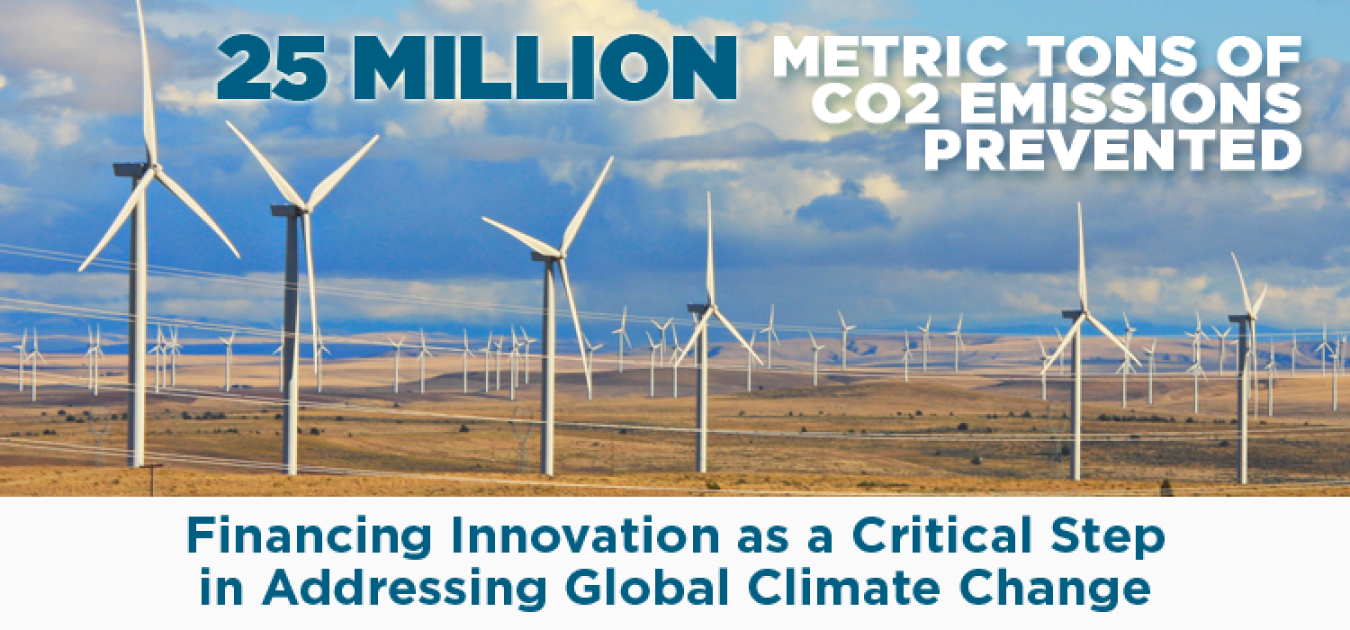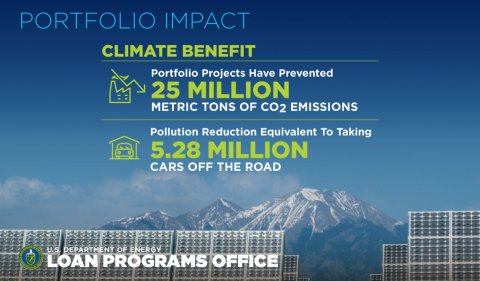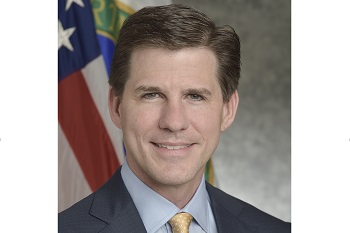Today, the Department’s Loan Programs Office (LPO) released a report highlighting the role it has played in financing commercial-scale deployments of energy technology innovation that are already helping the U.S. to reduce carbon dioxide emissions. A...
Office of Energy Dominance Financing
December 17, 2015
Last week, Secretary Moniz returned from Paris, where he participated with other world leaders in the 21st United Nations climate conference (COP21) that resulted in a strong global agreement to reduce global carbon pollution and combat climate change. As the Secretary has previously stated, solving climate change starts with innovation.
Today, the Department’s Loan Programs Office (LPO) released a report highlighting the role it has played in financing commercial-scale deployments of energy technology innovation that are already helping the U.S. to reduce carbon dioxide emissions. As of September 2015, the clean energy and auto manufacturing projects in LPO’s portfolio have avoided nearly 25 million metric tons of carbon dioxide emissions. This is equivalent to taking 5.28 million gasoline-powered cars off the road.
Today’s report highlights how LPO is successfully achieving its mission to help accelerate deployment of innovative technologies that reduce greenhouse gas emissions. However, the agreement reached in Paris means that more innovations need to be deployed and more financing efforts will be needed.
One of those efforts is an initiative called Mission Innovation. Through this initiative that was launched at COP21, 20 countries – including the U.S. – are committing to double their respective clean energy research and development (R&D) investment over five years. Investments in R&D will play an important role in advancing innovative energy technology. However, financing mechanisms will also be needed to help innovative technologies reach commercial scale deployment with much-needed urgency.
LPO can play a role in those efforts with more than $40 billion in remaining loan and loan guarantee authority to help finance innovative technologies that can reduce carbon emissions. By supporting technology deployment, the U.S. can be a global leader in commercializing groundbreaking innovations like lightweight materials for vehicles, advanced grid integration and storage, biofuels, advanced nuclear energy, carbon capture at fossil fuel power plants, and more. Doing so will not only help meet U.S. goals, but also advance technologies that will help other nations support their commitments to address climate change.



